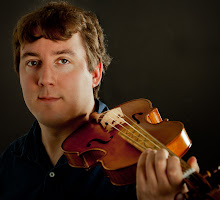In launching a blog which features the notion of truth at its core, I may well have shot myself in the foot before I've even started. Because what is truth? As someone I know put it to me after he read my first blog: "Isn't the truth different according to different people?" Is truth, as I claimed earlier, "a fixed entity" - something that just is - or do we humans have individual experiences and beliefs that can be shaped into something that can just as validly be called 'truth'?
In looking up the dictionary, I see that truth is several things: 1. the quality or state of being true; 2. that which is true or in accordance with facts or reality; and 3. a fact or belief that is accepted as true. This last definition is the most interesting to me, and I emphasised the word accepted because it indicates that a fact which may not, upon future investigation, turn out to have been fact, can still be considered true if it was widely accepted to be true at the time.
To use an example from recent headlines, it is a current and universally accepted truth of physics that nothing can go faster than the speed of light. However, thousands of experiments at CERN appear to have produced subatomic particles than can indeed beat light to the finish line.
Now it may well turn out, under scrutiny, that there was some kind of mistake made in the experiment, and that these neutrinos are in fact slower than the speed of light. However, let's say that it does turn out to be indisputably proven. Could we still say that it was truth that nothing could go faster than the speed of light, simply because it was once universally accepted? Wouldn't we rather have to say "Well, we thought that it was true, but..."?
There is a distinction unfolding here between truth and conviction. Absolute truths (if there are any) vs. human truths. Human truths - or convictions - can on the one hand be influenced by perfectly noble elements: experience, a broad intelligence, humility, perceptiveness, insight. But they can equally be influenced by stubbornness, ignorance, naiveté, assumption, habit, fear.
The truth/conviction distinction may seem obvious to some people reading, but it is a distinction surprisingly non-existent for many people in the world of music making, particularly those who, like myself, call themselves 'early musicians'.
Early musicians - those of us inspired by the idea of historically informed performance practice - love to latch on to evidence and seize hold of quotes from treatises as if they were equal in status to scientific fact. "This is how it was done!" we exclaim. I have definitely said that last phrase during rehearsals, and I have to admit I have based my convictions on less-than-noble elements and sometimes still do. (It's only human!)
However, true music making is not a science, and I would say that the only absolute truth is that there are no absolute truths in the history of music and performance, other than a composer's birth and death dates. Every composer was a human, moving through music and life within the contexts of their times, and their music is thus an extension of these contexts.
Thus, one of my goals in this blog is to take a long, hard look at many things that early musicians take for granted as truth, in their quest for authenticity (translation: superiority). I will certainly be blogging about the wonderful gems that can be found in treatises and how these can shape the choices we make as musicians striving for good taste and artistic beauty. But it is not my intention to imply 'must' or 'should' at any time. My aim, instead, is to develop and fine-tune my (and perhaps others') convictions, in the best way possible.

No comments:
Post a Comment